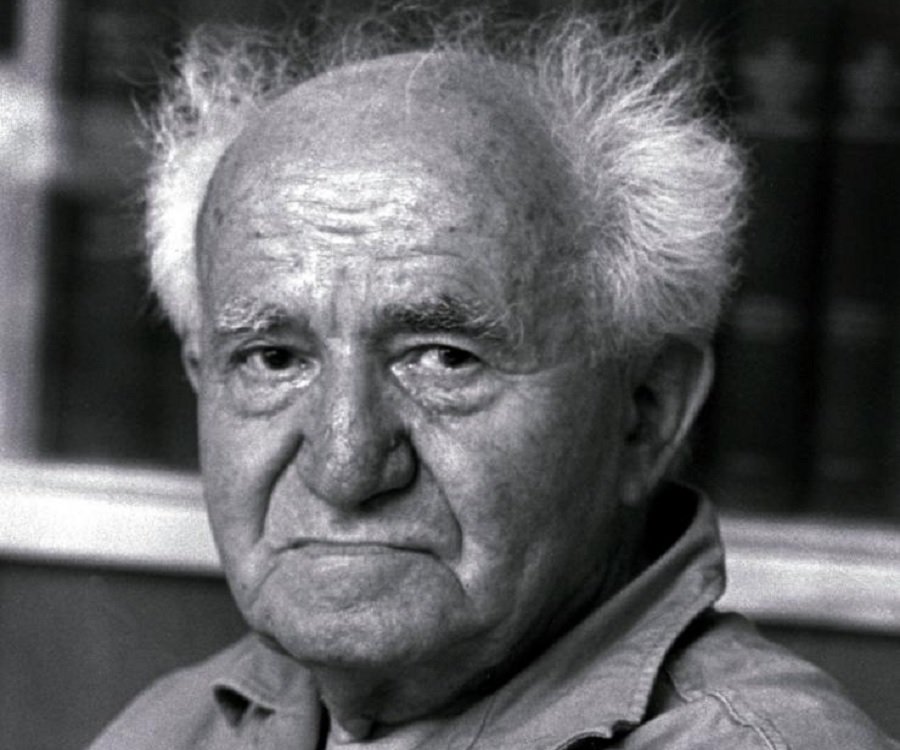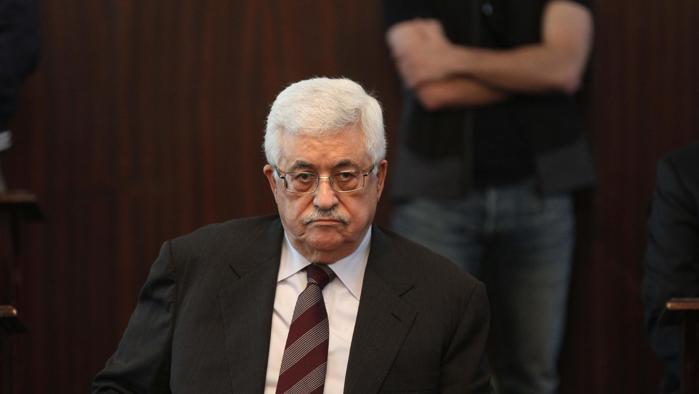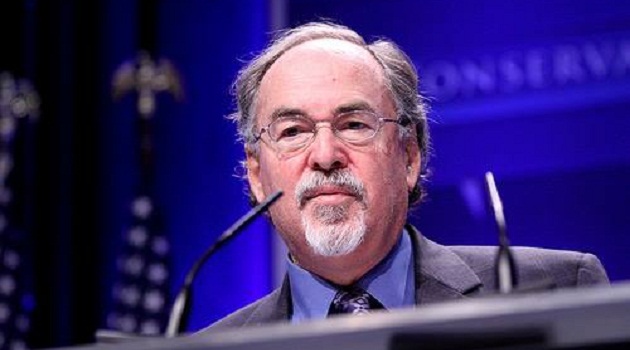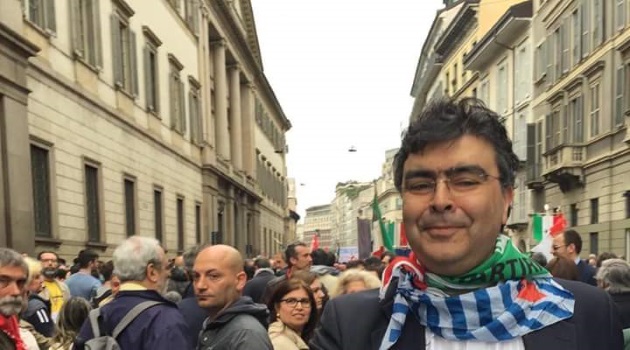Benny Morris is one of the leading experts in the Arab-Israeli conflict. Born in 1948,
a history professor at the department of Middle East Studies at the University of
Ben Gurion in the Negev, wrote basic books that no serious scholar or researcher
who wants to understand something that is the most problematic and lasting
historical conflict on a planetary scale, may be out of the question. Among them,
Esilio, Israel and the Palestinian Exodus 1947-1949, Victims, History of the
Arab-Zionist War 1881-2000, The First War of Israel. From the foundation to the
conflict with the Arab states from 1947 to 1949. His glimpse of history is the
shining and relentless one of an impenitent realist, who analyzes and proto-collates
the facts with completely dry eyes.
We met in Jerusalem, in the Rehavia district, on a bright day at the end of June.
When you started writing about the Arab-Israeli conflict you were welcomed
to the left as a scholar who was deconstructing the hegemonic narrative on
the War of Independence. Subsequently, your admirers attacked you for what
they considered a change of historical perspective. Has this change actually
been? I never changed my historical perspective. I always wrote what the documents
were telling me, and the perspective did not change. If you look at my first refugee
book ( Esilo, Israel and the Palestinian Exodus, 1947-1949), the conclusions are
exactly the same as those of the second version published sixteen years later.
What has changed has been my assessment of the Palestinian will to make peace
with Israel. In the 1990s I was cautiously hopeful that the Palestinians had changed
their position and were ready to make peace. It turned out that they were not. When
they rejected American and Israeli compromises in 2000, this episode changed my
perspective. That is why many people got angry with me because I said that peace
is not the fault of the Israelis but of the Palestinians.
In 1922, Mussa Kazim al Husseini, the head of the Arab-Palestinian Executive
on Arabs and Jews, said, "Nature does not allow a spirit of cooperation between
two so different peoples." After ninety-four years it seems that his words are
still very modern. Do you agree with him?Yes, I seem to see things correctly. I do
not think Jews and Arabs can live well in a state in which they share power. I would
say that things have worsened, that the nearly one hundred additional years of
animosity and violence have made them less available to trust each other than they
were before. There has been terrorism, resumption of Arab outburst, Palestinian
approach to fundamentalism. This has made it even more unlikely that peace can
be achieved.
From your research it seems that you consider Arab rejection as the main
obstacle for a resolution of the conflict. Is that so? From my point of view, Arab
refusal has not changed. They said no to the compromise advanced by the British
in the 1930s, they said no to the United Nations plan of division that expressed the
will of the international community, they said no in 2000 with Arafat at Camp David
and said another not with Abu Mazen as their leader at the Olmert compromise in
2008. Meanwhile, Hamas has become much stronger and opposed to any kind of
territorial compromise. I see no compromise chance on the horizon.
I would like to talk about the attitude of the Zionist leaders before and
during the Independence War. There is a vexata quaestio concerning the
question of the will to transfer the Arab population before and during the war.
There are those who argue that it was the product of a premeditation, eventually
reaching the point of accusing the Zionist leaders of genocidal mentality, and
those like you, according to whom the transfer was more the result of the Arab
threat to the Jewish presence. What can you tell me about this?First of all, the
issue has nothing to do with genocide or genocide. At worst, some Zionist leaders
thought of the transfer and certainly not in the terms of massacres or mass murders,
and in fact nothing of the kind took place. In 1930, while anti-Semitism increased in
Europe, there was a need for a safe haven for Jews. The United States and England
did not want to take them. Jewish desire was to come to Palestine where Jewish
sovereignty had existed for centuries, and some leaders including Ben Gurion and
Chaim Weizmann reasoned on the transfer of a portion of the Arab population or the
whole Arab population from the area that would have to become Jewish state. Now, in
1937, the Peel Commission proposed to the Arabs a split by which Jews would
acquire 17% of Palestine and Arabs something like 70%. The Jews thought it was just
right if they were to take 17%, at least to be Arab-free so that they would have
enough space to absorb persecuted Jews coming from Germany. That is what the
Peel Commission considered right. He recommended the transfer as a prerequisite that
accompanied the solution of the two states. That is what the Peel Commission
considered right. He recommended the transfer as a prerequisite that accompanied
the solution of the two states. That is what the Peel Commission considered right.
He recommended the transfer as a prerequisite that accompanied the solution of the
two states.
Some Jews rejected the idea of transfer as they thought there was something immoral
in the idea of expelling part of the native population, but others thought that the
morality of saving hundreds of thousands of Jewish lives overwhelmed the immorality
of throwing out a few hundred of thousands of Arabs, two hundred and twenty-five
thousand Arabs, from the area that was supposed to become the Jewish state. They
did not have to go somewhere else, they would have gone to live with their people
and they would be compensated. That was the idea, that's what the Peel Commission
recommended, and was endorsed by people like Ben Gurion and Weizmann. The
British governorship endorsed the idea, but then denied it, and in 1949 I advised
that all Palestine was essentially placed under Arab sovereignty.
The transfer took place in 1947, 48 and 49 as a result of the War. The Arabs of Palestine and later those of the surrounding states attacked the Jews and the emerging Jewish state. It was a civil war for the first half, during which the population was mixed. The only way to win for the Arabs was to expel Jews from areas that were to become Arabs and Jews to expel Arabs from areas that would have to become Jewish. The Jews were more efficient and essentially hunted by the Arabs. Many of them fled as a result of this and the Jews made sure they did not return. Some were expelled, some were advised or ordered by their leaders to leave, thinking they would return once the Arabs had won the war.
Some historians, unlike me, do not think that when Ben Gurion and Chaim Weizmann talk of transfer in the 1930s were really willing to take it on. On the contrary, I think that they seriously considered the thing but that the British authorities did not want to implement it, and the Jews in the 1930s were not able to do it on their own, but they seriously considered the matter.

Ben Gurion
BEN-GURION’S DECLARATION ON THE EXCLUSIVE AND INALIENABLE
JEWISH RIGHT TO THE WHOLE OF
THE LAND OF ISRAEL:
at the Basle Session of the 20th Zionist Congress at Zurich(1937)
(David Ben-Gurion was the first Prime Minister of Israel and
widely hailed as the State's main founder).
No Jew has the right to yield the rights of the
Jewish People in Israel -
David Ben Gurion
(David Ben-Gurion was the first Prime Minister of Israel and
widely hailed as the State's main founder).
"No Jew has the right to yield the rights of the Jewish
People in Israel.
No Jew has the authority to do so.
No Jewish body has the authority to do so.
Not even the entire Jewish People alive today has the right
to yield any part of Israel.
It is the right of the Jewish People over the generations, a
right that under no conditions can be cancelled.
Even if Jews during a specific period proclaim they are
relinquishing this right, they have neither the power nor the authority to deny
it to future generations.
No concession of this type is binding or obligates the Jewish
People. Our right to the country - the entire country - exists as an eternal
right, and we shall not yield this historic right until its full and complete
redemption is realized."
(David Ben Gurion, Zionist Congress, Basel, Switzerland,
1937).
"No country in the world exists today by virtue of its
'right'.
All countries exist today by virtue of their ability to
defend themselves against those who seek their destruction
In November 1947, when a partition of the country was proposed, there were to be four hundred thousand Arabs in the Jewish state and just over five hundred thousand Jews, and Zionist leaders, including Ben Gurion and Weizmann, accepted the thing, the presence of a large Arab minority in Jewish state. One might say they were not sincere, they did not really mean it, but they said yes. The Arabs said no and they started to shoot.
When I interviewed German scholar and German politologist Matthias Kuntzel last winter, he stressed that during the Thirties the Muslim Brotherhood and Haji Amin at Hussein had Islamized the war against Zionism and the Jews. Do you agree with him that the most robust roots of the conflict are the religious ones?Not entirely. The conflict raises political elements and nationalist struggles between the two sides and also elements of religious conflict. At different times one of the two prevails, but certainly from the beginning there was a large religious element in Arab antagonism against Zionism and increased with Haji to Husseini. He was an ecclesiastical and he understood very well that to mobilize the Arab masses it was necessary to use religion, not politics. At that time the masses did not know what nationalism was but understood what it was when talking about Allah and the holy places. Husseini said that the Jews wanted to occupy the Mount of Temple, who wanted to destroy the mosques and this was accepted by the Arab masses and led them to violent attacks against the Jewish presence and the rising Jewish state. In Islam, there is a profound antagonism towards Judaism, and it is anchored in the Qur'an because Judaism was a rival religion when Mohammed began to preach and in fact destroyed some Jewish tribes. Religion is still the basis for continued Muslim antagonism against Jews and Christians and a justification for jihad.
Today, it is customary to define the Israeli presence in the West Bank, "occupation" with all that this definition implies, but this definition is highly controversial and openly contested by Israel. In fact, the territories are disputed. What is your position on the issue?Territories are definitely disputed, but there is also a half occupation. Why semi-occupation? Because some areas in the West Bank, especially those with a large Arab population are somehow governed by the Palestinian Authority but are also surrounded by Israeli blockades and military contingents, so there is a kind of occupation. So if the Palestinians want to go to Jordan or fly to the United States they must get an Israeli permit if they want to import something the imports must arrive in Israel if they want to export something, even in this case, what is being exported must go to Israel, if they want to build in some areas they must get Israeli permits. So it's a semi-occupation, it's an unusual occupation. Israel is not there but controls the surrounding area. The same thing applies to the Gaza Strip. It is completely under Hamas control, but Israel controls the airspace, the sea coast, and some of the exits from the Strip while Egypt controls another exit to the south. Hamas rules inside, puts people in jail, kills opponents, enforces religious law, this is true, governs somehow, they are sovereign in some way, but not completely because Israel surrounds them and supplies water and electricity. Basically they live by taking from Israel. it imposes religious law, this is true, governed in some way, they are sovereign in some way, but not completely because Israel surrounds them and supplies water and electricity. Basically they live by taking from Israel. it imposes religious law, this is true, governed in some way, they are sovereign in some way, but not completely because Israel surrounds them and supplies water and electricity. Basically they live by taking from Israel.
In One state two states liquid as completely unrealistic the idea of a binational state and write that "The idea of the two states remains the only moral and political base for a solution that offers a minimum of justice and trace a chance for peace for both peoples. " To what extent do Palestinians really want this solution?I do not think they want it. As they have done consistently in the past, they still do not want a solution today. They want all of Palestine. They believe they belong in terms of justice. Sharing the land with Israel, which has 78%, consider it completely unfair and I am not willing to accept it. Fatah, the so-called secular movement, pretends to want a binational solution, Hamas rejects it openly, Abu Mazen waves here and there, disagrees with a Jewish state alongside a Palestinian state but says yes, however, when it comes to negotiating will certainly not sign any agreement, as did Arafat and how Abu Mazen did not do it in 2008 when it was offered to him.
We say that in the end there is an agreement between the Israeli government and the Palestinian Authority. How seriously could any agreement be reached against the strong opposition of Hamas who rules a million and five hundred thousand Arabs in Gaza?Hamas not only governs one million and five hundred thousand Arabs in Gaza but also has a profound influence on the West Bank and refugee camps in Lebanon, Syria and Jordan. Hamas enjoys a very strong support. I do not think any leader of the Palestinian Authority, Abbas or his successor, will ever sign an agreement because it would be a death warrant. Hamas would kill him, Hamas would sovereignly agree if he were to sign it, but I do not believe it will sign him. Even if he did, as you suggest, Hamas would turn and many Palestinians would bow to Hamas because they were educated and inculcated with the idea that the Israelis are thieves and their presence in Israel is unlawful so they would not join. They think the story is on their side. This is a problem, as the story for them is the surrounding Arab states, the Arab economic power,

Abu Mazen
Jews are just over six million in this small corner of the world where there are hundreds of millions of Arabs, so the Arabs look at the thing objectively and say, it can not last, it's an anomaly. What we have to do is not sign any agreement and eventually demography, economic power, political power, will decide the outcome and end up like the crusaders who were expelled in the twelfth century.
Do you agree that the fictional narrative according to which the Palestinians are victims and the exploiting and persecuting Jews is a reformulation of the persistent anti-Semitic paradigm? It's a set of things. Look, both peoples are victims. Jews are the victims of two thousand years of Christian persecution and Muslim persecution and are victims of Arab attacks and Palestinian terrorism. The Arabs are victims in the sense that Israel has dispersed a large proportion from their homes, occupied the land and made them live under a semi-occupation form since 1967.
The Jews at the moment in the Middle East are the strongest, but if you look at the map and demographic reality, political reality, the Jews, are actually the disadvantaged in historical terms. We are stronger than the Palestinians but the Arab world, which is currently fragmented, is potentially much stronger than us.
I have named one of my Vittime books because both sides are victims and claim to be, but if you look at things in a historical perspective, Jews are the biggest victims even if, in an immediate sense, Palestinians are also victims and are entitled to feel like that. However, their victimization is largely self-produced because they were offered a state by the Peel Commission, the United Nations, Israel and have always said no. If they had accepted that they would not be victims, they would have a real state, not all of Palestine, but they would have a large portion or, as was offered later, a small portion, but in any case a state. They are partly victims because they have continued to say no.
In the West, prejudice against Israel is very strong. Many consider it a vestige of colonialism and this definition has been sold very well since the 1960s to the present. What do you have to say about this?The colonial paradigm refers to an imperialist motherland who sends their children to other lands, conquers and thus exploits natives and natural resources. Zionism was the project of a persecuted people in Europe, the Jews, who needed a homeland and came here and bought land plots. They did not win anything, they bought it. They were not agents of an empire, they thought they were agents in the service of their people. It is true that England initially supported them for a while and then took away their support, and it is also true that the United States has supported them for some time, but they have never been agents of the United States as can be seen from Obama / Netanyahu rivalry. It is true that in a certain way Israel protects some American interests and Western interests in the area as we share the same values and so on. There is something colonial in Zionism in the sense that it was a European movement and it is Europe that moves to a land of the Third World and gradually extends on it. In this sense there is a colonial element. Zionism has created what we callmoshavots ( cooperative agricultural community) and settlements that have gradually expanded, from few to more and more. So, once again, this is a colonial movement, but in no way can be compared to Western colonialism.
You are a cube realist. In what you write and say there is never a soft point. Is it too pessimistic to see Israel's future as a perennial fortress in the Middle East, or is it the best way to look at reality in reality?I believe that reality in the Middle East, and even more so after the so-called Arab awakening, means that Israel, in order to survive here, and I'm not sure if it will succeed, the Roman Empire has not survived, no one survives forever, to be a fortress, you need to be strong. It has to reject the Arab attacks and the Arab antagonism and Western malevolence, which is growing, as you say. Israel could behave better in a sense, it could stop settlements, never support the settlement business, show the West to be honest in its will to peace. There are actions that the government could do. For example, build a port in Gaza that could be monitored internationally and from Israel. I'm not saying it can be done, I'm not saying it might work. The real basic problem is not really Israel's gestures or politics but it is Arab refusal.
In this way we return to the main point. Yes, that's how it is, but that's how things are.
This post is also available in: English ( English )
ABBAS , ABU MAZEN , AL HUSSEINI , ARAFAT , BEN GURION , BENNY MORRIS , JEWS , GAZA , HAMAS , ISLAM , ISRAEL , KUNTZEL , MIDDLE EAST , TEMPLE MOUNT , NETANYAHU , PALESTINIANS





